We must agree to disagree with an article published by Salesforce UK about how to respond effectively to sales objections. Why? Because I believe there is a better way to handle some of the objections mentioned.
In some cases, the objections shouldn’t even come up because the customer will have found the answers themselves. If not, you can be armed with the objection and your response by the time the customer calls you.
Here is how I think you can handle sales objections more successfully.
Common Objections
While I agree with Salesforce that most, if not all, B2B buyers will have objections arise during the sales process, there are three common objections you should already have an answer for:
- Budget or price
- Authority: “The boss won’t agree to this.”
- Timing: “Not right now.”
Online tools are available for the buyer and your salespeople to use during the course of the buyer’s journey that will help you build a business case and illustrate the value of your solution. If these tools are used appropriately and at the right time, the conversation about price will never get off the ground.
If the business case is built from information the buyer has already volunteered by entering it into an assessment tool or value calculator, your salespeople can follow up with an ROI and TCO tool to round it out.
You will have the type of information that will impact the buying committee’s concerns, which are more about money than features, benefits, or even workflow efficiency. You will convince them faster by showing them how much money they are losing (or not making) for each day your solution is not in place.
When and How to Listen
The Salesforce article says the salesperson needs to listen and engage with the customer to begin putting together the best solution.
You should already have a clear idea what the customer needs by leveraging the data from your website, social media channels, and other places where you can put up an assessment tool and value calculator. The buyer enters information into the tool that is specific to both the industry and the buyer’s company in return for a report.
You take that information and begin putting together a solution that is customized to that buyer. You don’t have to wait until the buyer calls you to begin preparing for your sale.
Responding to Price Objections
I addressed this briefly earlier but now I want to go into more detail. The Salesforce article says your response to an objection about price is to ask, “What price would you be comfortable paying?”
I say never talk about price or anything that sounds like you are willing to discount. Instead, you show the value your solution provides through the results of a value calculator, which tells the customer how much money is being spent or not being brought in without your solution.
Another invaluable tool for building a case for value is a TCO calculator. If your buyer is thinking about a competitor’s solution along with yours, you can calculate the total cost of ownership of both solutions to show how yours will be more cost effective than the other.
Finally, an ROI calculator will reveal how quickly or how many times over the buyer’s initial investment will be paid back with your solution.
Conclusion
With all this data on your side, you can not only blow the price question out of the water, but you also provide the type of information that will cause your buyer’s boss to say, “We want it now.”
You don’t have to wait until the customer calls you to build the case for your solution. You can anticipate the most common objections and be ready to counter them before the buyer brings them up.
Once you are in front of the customer, you will be more than halfway down the road to closing a sale and far ahead of the salesperson who waits until the customer calls to find out what that he or she wants.















